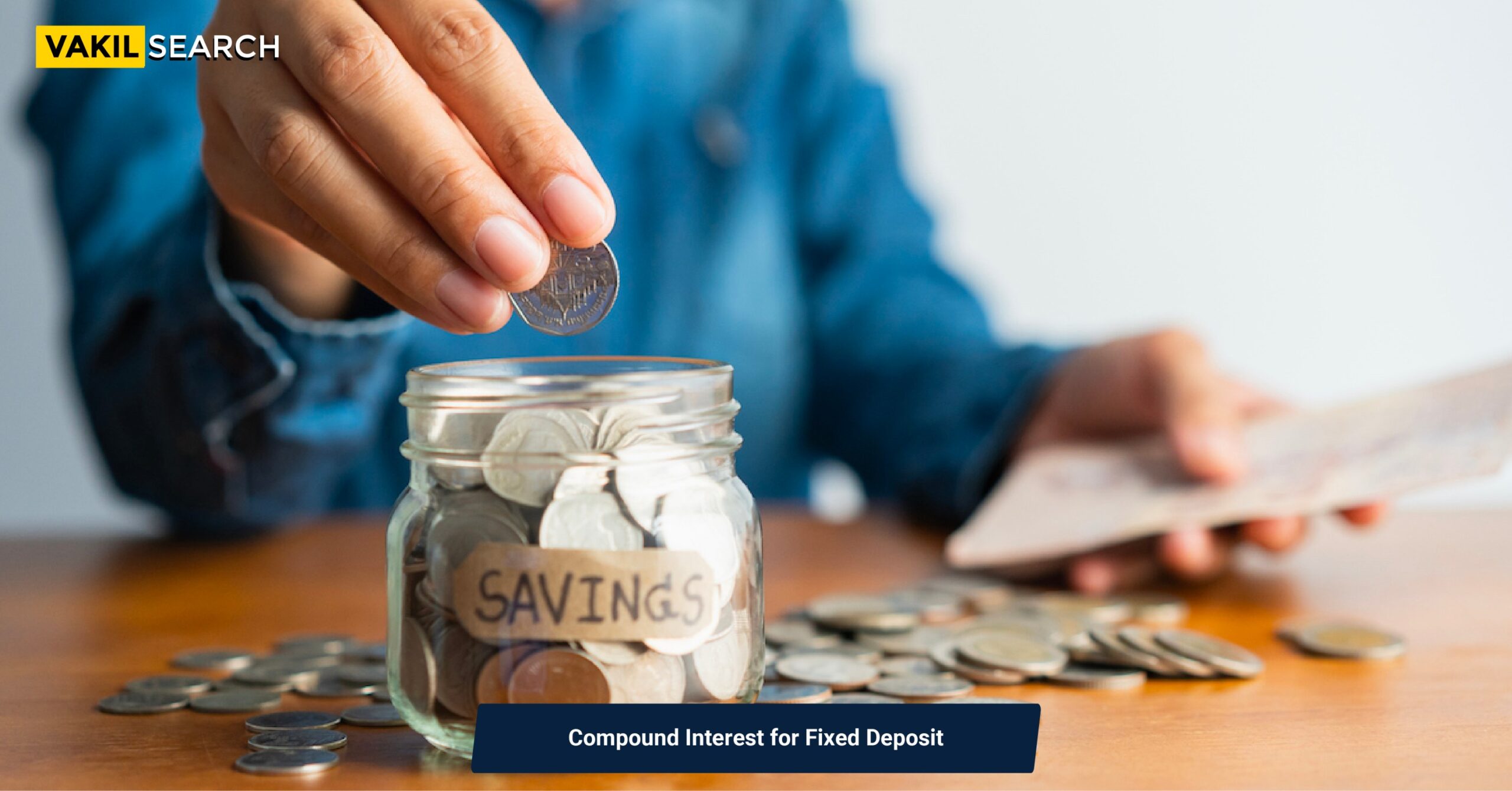Explore the world of compound interest on Fixed Deposits. This comprehensive guide explains how FDs work and provides practical examples for easy understanding.
Imagine your savings growing while you sleep. Sounds like a dream, doesn’t it? Well, that’s the magic of compound interest in Fixed Deposits (FDs), the most popular investment option in India. In this guide, we’ll explain the concept of compound interest, in order to make it easy for you to understand and leverage this financial tool to your advantage.
What is Compound Interest?
Compound interest is the secret sauce that makes your money work for you. It’s the interest calculated not only on your initial deposit but also on the interest that your money has earned over time. In simpler terms, it’s like a snowball effect, where your savings grow exponentially.
Here’s how it works: Let’s say you invest Rs. 10,000 in an FD with an annual interest rate of 7%. In the first year, you’ll earn Rs. 700 as interest (10,000 * 0.07). However, in the second year, you won’t earn interest just on your initial Rs. 10,000, but on the total amount in your FD, which is now Rs. 10,700. This compounding continues, and over time, your money multiplies.
Why is Compound Interest Important in FDs?
Compound interest is the engine that powers your FD’s growth. Unlike simple interest, where you only earn interest on your principal amount, compound interest takes your interest earnings into account. This means your FD can grow substantially over the years.
Let’s Illustrate this With an Example:
Suppose you invest Rs. 1,00,000 in an FD for 5 years with an annual interest rate of 6%. With simple interest, you’d earn Rs. 6,000 each year (1,00,000 * 0.06). But with compound interest, your earnings increase each year:
Year 1: Rs. 1,06,000
Year 2: Rs. 1,12,360
Year 3: Rs. 1,19,101
Year 4: Rs. 1,26,247
Year 5: Rs. 1,33,823
By the end of 5 years, you’ll have Rs. 1,33,823 in your FD, thanks to compound interest. That’s Rs. 7,823 more than what you’d earn with simple interest.
How to Calculate Compound Interest?
Calculating compound interest manually can be a bit complex, but you don’t need to worry about that. Most banks and financial institutions provide online calculators that do the job for you. All you need to know are the key variables:
- Principal Amount (P): The initial amount you invest.
- Annual Interest Rate (R): The rate at which your money grows annually.
- Time Period (T): The duration for which you keep your money invested.
- Compounding Frequency (N): How often the interest is calculated and added to your FD (usually quarterly, semi-annually, or annually).
Simply plus these values into Vakilsearch’s Online Simple Interest Calculator, and you’ll get an estimate of your returns. It’s quick, easy, and ensures accuracy.
Benefits of Compound Interest in FDs
Now that you understand the basics, let’s delve into the advantages of harnessing compound interest in FDs:
- Higher Returns:
Your money grows faster compared to simple interest, leading to higher returns over time.
- Effortless Saving:
FDs are a low-risk investment option, making them ideal for risk-averse individuals.
- Financial Goals:
Use FDs to achieve long-term financial goals, such as buying a house or funding your child’s education.
- Emergency Fund:
FDs can serve as a reliable emergency fund, providing easy access to your savings when needed.
- Tax Benefits:
Some FDs offer tax benefits under Section 80C of the Income Tax Act.
- Stability:
FD interest rates are relatively stable, providing a predictable source of income.
Frequently Asked Questions (FAQs)
Is compound interest better than simple interest for FDs?
Compound interest is superior as it allows your money to grow exponentially over time, providing higher returns.
How often is interest compounded in FDs?
The compounding frequency for an FD can vary. Usually, FDs are compounded either quarterly, semi-annually, or annually.
Can I withdraw my FD before maturity without losing interest?
You can, but there might be a penalty, and you'll earn lower interest. It's advisable to keep FDs for their pre-determined tenure.
What happens if I miss an FD renewal date?
If you forget to renew your FD, it may be automatically renewed at the prevailing interest rate. Hence, it's essential to keep track of maturity dates.
Are FD returns taxable?
Yes, the interest earned on FDs is taxable as per your income tax slab. However, some FDs offer tax-saving options under Section 80C.
Can I take a loan against my FD?
Many banks allow you to take a loan against your FD at lower interest rates, providing liquidity without breaking your FD. In conclusion, compound interest is a powerful tool that can help you achieve your financial goals. By investing in FDs and understanding how compound interest works, you can watch your savings grow steadily over time. It's a simple yet effective way to secure your financial future.
Read more:-
- Advantages of Partnership Firm
- Complete details about Registration of Partnership Firm?
- Necessity of Partnership Deed

